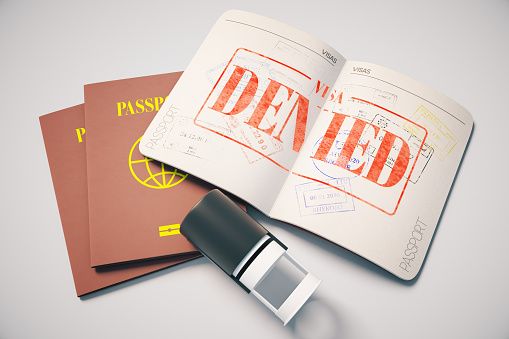 Donald Trump’s new travel ban hasn’t met the widespread outrage that greeted his first proposal, and it remains to be seen whether big name companies such as Apple and Google will continue to oppose the still-controversial move in court.
Donald Trump’s new travel ban hasn’t met the widespread outrage that greeted his first proposal, and it remains to be seen whether big name companies such as Apple and Google will continue to oppose the still-controversial move in court.
As was widely expected, Trump on Monday released a watered down executive order that explicitly permits current residents, dual nationals and other valid visa holders from entering the U.S. The list of countries covered by the ban was cut to six from seven, after Iraq was excluded to improve relations in the fight against militant religious extremists.
Citizens from Syria, Iran, Libya, Somalia, Sudan and Yemen would still be blocked from entering the U.S. for at least 90 days, while refugees would be subject to a 120-day vetting process.
“The American travel community supports efforts to bolster national security and the Trump administration deserves some credit for the substantially more cautious and deliberate introduction of the revised executive order,” said Roger Dow, CEO of the U.S. Travel Association, a key industry group.
Unlike the initial court-blocked ban, which went into force immediately and triggered chaos at airports across the country, the new order won’t come into effect until March 16, subject to any new legal action. “The question remains whether the revised order did enough to mollify the prospective travelers from Canada, Europe, or elsewhere around the world who have been put off by the initial travel ban,” Dow said.
A survey released in late January by the Association of Corporate Travel Executives, another industry group, found that 39% of 260 respondents thought the initial ban had the potential to reduce corporate travel. Among respondents’ fears was the potential for reprisals against American travelers to countries in the Middle East and North Africa.
Representatives from two other industries with much at stake—tech and restaurants—continued to express concerns. “Barring people from entering our country because of where they’re from was wrong the first time around,” Airbnb CEO Brian Chesky said on Twitter. “Still wrong.”
Salesforce CEO Mark Benioff noted that his father arrived in the U.S. from Kiev, while Uber issued a statement saying that it’s sentiment hadn’t changed. “President Trump’s immigration ban is unjust and wrong,” it said.
Rival ride-sharing company Lyft went a step further, with CEO Logan Green indicating that he and fellow company founder John Zimmer would meet with the American Civil Liberties Union on Wednesday to support efforts against the ban. “We will continue to speak out and take action when the values of our community are put at risk,” Logan said.
Around 45% of the chefs in American restaurants are immigrants, according to research conducted by the National Restaurants Association. On Monday, the lobby group reacted cautiously to the new executive order, issuing a statement saying that it “remained concerned” about potential negative impacts on the economy.

Chief Executive Group exists to improve the performance of U.S. CEOs, senior executives and public-company directors, helping you grow your companies, build your communities and strengthen society. Learn more at chiefexecutivegroup.com.
0

1:00 - 5:00 pm
Over 70% of Executives Surveyed Agree: Many Strategic Planning Efforts Lack Systematic Approach Tips for Enhancing Your Strategic Planning Process
Executives expressed frustration with their current strategic planning process. Issues include:
Steve Rutan and Denise Harrison have put together an afternoon workshop that will provide the tools you need to address these concerns. They have worked with hundreds of executives to develop a systematic approach that will enable your team to make better decisions during strategic planning. Steve and Denise will walk you through exercises for prioritizing your lists and steps that will reset and reinvigorate your process. This will be a hands-on workshop that will enable you to think about your business as you use the tools that are being presented. If you are ready for a Strategic Planning tune-up, select this workshop in your registration form. The additional fee of $695 will be added to your total.

2:00 - 5:00 pm
Female leaders face the same issues all leaders do, but they often face additional challenges too. In this peer session, we will facilitate a discussion of best practices and how to overcome common barriers to help women leaders be more effective within and outside their organizations.
Limited space available.

10:30 - 5:00 pm
General’s Retreat at Hermitage Golf Course
Sponsored by UBS
General’s Retreat, built in 1986 with architect Gary Roger Baird, has been voted the “Best Golf Course in Nashville” and is a “must play” when visiting the Nashville, Tennessee area. With the beautiful setting along the Cumberland River, golfers of all capabilities will thoroughly enjoy the golf, scenery and hospitality.
The golf outing fee includes transportation to and from the hotel, greens/cart fees, use of practice facilities, and boxed lunch. The bus will leave the hotel at 10:30 am for a noon shotgun start and return to the hotel after the cocktail reception following the completion of the round.